Seeking dignity and direct democracy
The leaderless protests are upending traditional definitions of leadership and forms of hierarchy. Instead, the protestors are seeking some form of direct democracy and dignity.
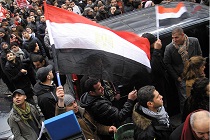 Courtesy: Jacques Delarue/Wikimedia Commons
Courtesy: Jacques Delarue/Wikimedia Commons
The leaderless protests are upending traditional definitions of leadership and forms of hierarchy. Instead, the protestors are seeking some form of direct democracy and dignity.
 Courtesy: European External Action Service/ Flickr
Courtesy: European External Action Service/ Flickr
The downfall of Egyptian president Mohammad Morsi was partly contributed by those thousands of protesters who disagreed with his view of “Us” and “Them”. Leaders such as Morsi have focused on persecuting those who refuse to share their vision; continuing down this path would have had a negative impact on history
 Courtesy: Semilla Luz/ Flickr
Courtesy: Semilla Luz/ Flickr
The protests in Brazil, Turkey, Egypt and India are bound by a common thread of grievances against misuse of government power and corruption. These modern protests show a marked decline in government trust, even though may not always have clear objectives
 Courtesy: MEAphotogallery/ Flickr
Courtesy: MEAphotogallery/ Flickr
In 2012, Iraq emerged as India’s second largest crude oil supplier thereby shifting focus back on bilateral relations. However, India’s historical and cultural connection with Iraq, as well as common geopolitical concerns, reveal that relations have the potential to go beyond oil
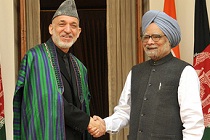 Courtesy: Ministry of External Affairs, India
Courtesy: Ministry of External Affairs, India
Kabul Diary is a compilation of experiences and observations by Gateway House’s Rajeshwari Krishnamurthy, who is visiting Afghanistan. In her second entry, she writes about the omnipresence of the ‘India’ factor and the goodwill that New Delhi has in Kabul.
Tarun Kataria, CEO, Religare Capital Markets India foresaw the decline of the rupee to the 60 mark against the U.S. dollar several months ago. He speaks to Gateway House’s Manjeet Kripalani about the impact the rupee crisis will have on the economy and consumers and how the government can reverse the situation
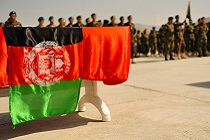 Courtesy: ISAFmedia/Flickr
Courtesy: ISAFmedia/Flickr
Kabul Diary is a compilation of experiences and observations by Gateway House’s Rajeshwari Krishnamurthy, who is visiting Afghanistan. In her first entry, she writes about her first impressions and important political developments, such as the break in talks on the Bilateral Security Agreement between Afghanistan and the U.S.
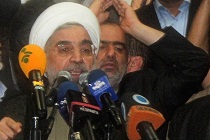 Courtesy: Ansarymehr/Wikimedia Commons
Courtesy: Ansarymehr/Wikimedia Commons
Hassan Rohani’s victory in the June 14 presidential election in Iran might allow more moderate voices in the political dialogue. But Iran's establishment decides positions on all major issues, including the nuclear programme, Syria, and dealings with the West. To what extent can Rohani change course?
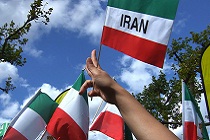 Courtesy: Creative Commons/Flickr
Courtesy: Creative Commons/Flickr
The 11th presidential election of Iran is unlikely to be fully democratic or transparent, but the winner will decide the nature of Tehran’s engagement with the West over its nuclear programme. The outcome of this election will also have a bearing on the crises in Syria and Iraq, and the Palestinian-Israeli conflict.
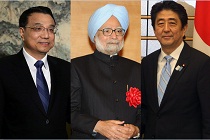 Courtesy: Ministry of External Affairs, India
Courtesy: Ministry of External Affairs, India
While the recent India-Japan Joint Statement contains significant breakthroughs, the China-Pakistan Joint Statement reveals the absence of warmth between India and China. With the current flurry of bilateral exchanges, India is fine-tuning its approach to emerging regional realities, as are others.